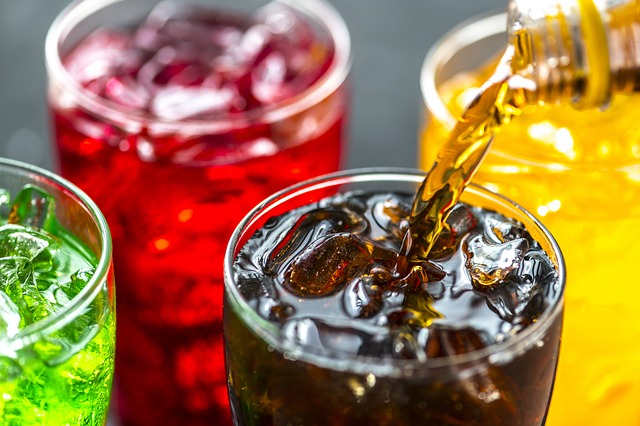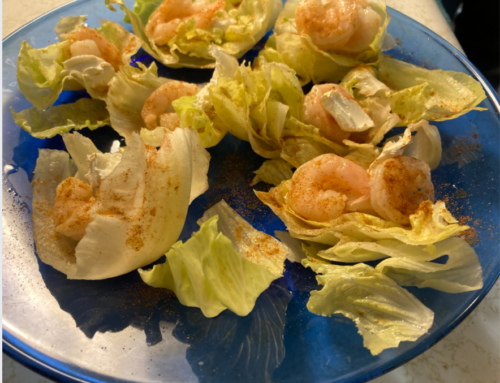 What is the Connection Between Diet Soda and Weight Gain?
What is the Connection Between Diet Soda and Weight Gain?
I recently received an email from someone commenting on my quote in the article Myths About Weight Loss and what Science Really Says. He said it was ‘ridiculous’ to say that diet soda with zero calories could cause weight gain. Here’s my quote.
“Research shows drinking diet soda is more likely to cause weight gain than non diet soda and may lead to health problems including diabetes and heart disease,” says Holly Stokes, a certified Hypnotherapist and Neuro-Linguistic Programming (NLP) Practitioner and author of A Lighter You! Train Your Brain to Slim Your Body. According to WebMD, eight years of data collected by researchers at the University of Texas Health Science Center in San Antonio found that a person’s risk for being overweight increased by 41 percent for every can or bottle of diet soft drink consumed each day.
Read the full article here: http://www.theactivetimes.com/myths-about-weight-loss-and-what-science-really-says
First off – some semantics here, my quote didn’t say cause – you can only show cause with studies that have all variables controlled. I did say ‘more likely to cause’ which refers to the relationship outcomes of the study.
I can certainly understand the confusion around the quote when the idea of calories in – calories out is so widespread. And it’s not as ridiculous as you might think when you consider there are other mechanisms at work in the body than just calories in – calories out. That equation makes mathematical sense, but your body is more than a mathematical equation. Foods affect your body differently.
The calories model is an oversimplification of the body’s processes and doesn’t correctly indicate how the body interacts with food for metabolism and fat storage. While calories are a piece of the puzzle, it doesn’t tell the whole story.
There is a growing body of research that diet soda not only correlates to a larger waistline and further studies reflecting that the mechanisms involved are more than just calorie management. Studies done at Purdue University published in Behavioral Neuroscience found that animals fed artificially sweetened yogurt ended up consuming more calories over a two week period. This study links artificial sweeteners to an increase in calorie consumption.
Here’s an excerpt from the article: Can Sugar Substitutes Make You Fat? “Animals fed with artificially sweetened yogurt over a two-week period consumed more calories and gained more weight — mostly in the form of fat — than animals eating yogurt flavored with glucose, a natural, high-calorie sweetener. It’s a continuation of work the Purdue group began in 2004, when they reported that animals consuming saccharin-sweetened liquids and snacks tended to eat more than animals fed high-calorie, sweetened foods.”
Here’s another article What Diet Soda Does to Belly Fat by Mandy Oaklander on Time website says, “A new study published in the Journal of the American Geriatrics Society found that people who drank diet soda gained almost triple the abdominal fat over nine years as those who didn’t drink diet soda.” The researchers are baffled as to what mechanisms are at play to create such striking tendencies.
This next article explains yet another link. What Diet Soda Does to Belly Fat discusses a study linking artificial sweeteners were found to change gut bacteria in mice, a precursor to insulin resistance and glucose tolerance and also found a decrease of the hormone leptin which suppresses hunger.
“There may be something else at work. A recent study in mice showed that artificial sweeteners actually changed the gut bacteria of mice in ways that made them vulnerable to insulin resistance and glucose intolerance — both of which can lead to weight gain. And other mice research suggests that artificial sweeteners are associated with a drop in the appetite-regulating hormone leptin, Hazuda says. Leptin is the hormone that inhibits hunger.”
The evidence continues to mount that low calorie sweeteners may not be all that they are cracked up to be and may come with side effects. In a study published by PubMed through the National Institute of Health, found that artificial sweeteners activate the sweet taste receptors signaling the body to secrete insulin. Insulin is the carrier hormone that takes glucose into the cells and plays a major role in fat storage. http://www.ncbi.nlm.nih.gov/pubmed/19352508
High levels of insulin signal the brain that your cells need glucose, so the brain signals cravings for carbs and tells your body to store fat. It also signals to burn carbs for energy rather than breaking down body fat. These processes of a high insulin response also stops the breakdown of fat and results in high triglyceride levels.
See the full article, How Insulin Works in the Body by diabetes expert Elizabeth Woolley.
When you consider the other mechanisms at play in your body, rather than just calories in – calories out, you can see the complexities of the health equation. It brings to the forefront that our old ideas about ‘calorie management’ may be an oversimplification and a better approach for healthy weight may be ‘blood sugar management’ rather than just focusing on counting calories.
Eating a healthy Low Glycemic natural diet can help you regulate and maintain healthy blood sugar levels, experience lasting energy throughout the day and promote your body’s ability to release weight naturally.
 This is important not only for diabetics, but also those who wish to lose weight and keep it off. The Low Glycemic principles are explained in my workbook, “A Lighter You! Health Coach’s Guide to Nutrition in Action” by Holly Stokes, The Brain Trainer. Get it here. This workbook takes complicated nutrition information and breaks it down into bite-size pieces that you can start putting into practice through small and easy steps.
This is important not only for diabetics, but also those who wish to lose weight and keep it off. The Low Glycemic principles are explained in my workbook, “A Lighter You! Health Coach’s Guide to Nutrition in Action” by Holly Stokes, The Brain Trainer. Get it here. This workbook takes complicated nutrition information and breaks it down into bite-size pieces that you can start putting into practice through small and easy steps.
It’s not about dieting or counting calories, it’s about how foods affect your body and how to keep your body in the fat burning zone.
I hope this article was helpful in explaining the link between diet soda and weight gain. Which at first glance may see preposterous, but when we take the body’s processes into account, we can see the connection.
Here’s to Your Health, Happiness and Success!
Holly





